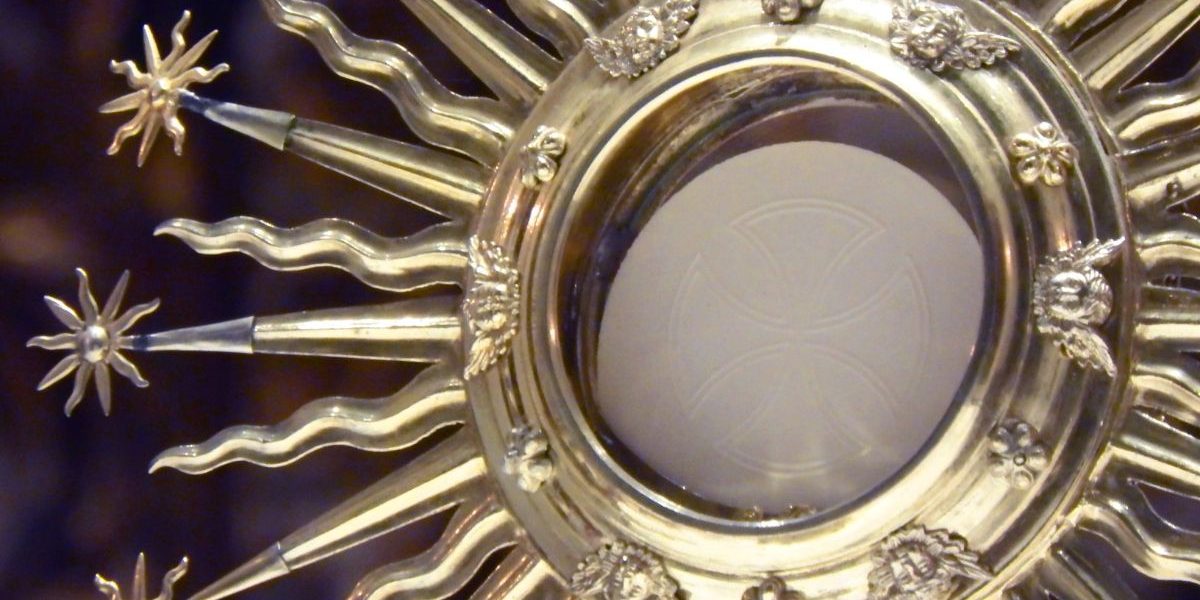The Eucharist is at the heart of Catholic worship. For many, it is more than just a ritual—it is a sacred moment where bread and wine become the Body and Blood of Christ. Understanding this sacrament allows Catholics to deepen their faith and strengthen their connection with God.
Whether you have been attending Mass for years or are just beginning to explore Catholic teachings, gaining insight into the Eucharist can bring a new level of appreciation and reverence.
A Sacred Mystery
The Eucharist is one of the most profound aspects of Catholic belief.
It is more than a symbol—it is the real presence of Christ.
It unites Catholics around the world through a shared act of faith.
It fulfills Jesus’ command at the Last Supper: “Do this in memory of me.”
Understanding the meaning behind the Eucharist allows believers to approach it with deeper faith and devotion.
The Meaning of the Eucharist
The word Eucharist comes from the Greek word eucharistia, which means “thanksgiving.” It is a celebration of Christ’s sacrifice, love, and presence among his people. During the Mass, Catholics participate in this sacred meal, believing that Jesus is truly present in the consecrated bread and wine.
This belief is rooted in Jesus’ own words at the Last Supper: “This is my body, which will be given for you; do this in memory of me” (Luke 22:19). These words are not meant to be symbolic. Instead, they reveal a divine mystery—one that has been passed down for over two thousand years.
The Real Presence of Christ
Catholics believe in the doctrine of transubstantiation, which means that during the consecration at Mass, the bread and wine truly become the Body and Blood of Christ.
The appearance remains the same, but the substance is changed by the power of the Holy Spirit. This is a key difference between Catholic teaching and other Christian denominations, some of which view the Eucharist as purely symbolic.
This belief is supported by the Gospel of John, where Jesus says: “Whoever eats my flesh and drinks my blood has eternal life, and I will raise them up on the last day” (John 6:54). Many of Jesus’ followers struggled to understand this teaching, but he never softened his words or suggested they were only symbolic. Instead, he reaffirmed this truth.
A Source of Strength and Unity
The Eucharist is often called the “source and summit” of Catholic life. It is a moment when Catholics come together in faith, setting aside personal struggles to focus on the presence of Christ. Receiving the Eucharist is not just a personal experience—it connects believers with the entire Church.
It brings spiritual nourishment, helping Catholics grow in their faith.
It forgives venial sins, providing grace to strengthen believers against temptation.
It unites Catholics as one body in Christ, no matter where they are in the world.
Many Catholics find deep comfort in receiving the Eucharist, knowing that Christ is truly present with them. Some describe a feeling of peace, renewal, or even transformation after partaking in Holy Communion.
How the Eucharist Shapes Daily Life
The effects of the Eucharist are not limited to the walls of the church. Catholics are called to carry the grace of this sacrament into their daily lives, allowing it to influence their actions, relationships, and sense of purpose.
A Call to Love: Just as Jesus gave himself for others, Catholics are encouraged to live with selflessness and compassion.
Strength in Difficult Times: The Eucharist provides comfort and strength during personal struggles.
A Reminder of Christ’s Presence: Receiving Communion is a reminder that Christ is always near, even in ordinary moments.
Many saints and spiritual leaders have spoken about the power of the Eucharist. Saint Teresa of Calcutta (Mother Teresa) once said, “When you look at the Crucifix, you understand how much Jesus loved you. When you look at the Eucharist, you understand how much Jesus loves you now.”
Preparing to Receive the Eucharist
Catholics are encouraged to receive the Eucharist with a heart that is open and prepared. The Church teaches that those who receive Communion should be free from mortal sin, which is why the Sacrament of Reconciliation (Confession) is often recommended beforehand.
Here are some ways to prepare:
Reflect on Christ’s sacrifice before attending Mass.
Go to Confession if needed, to receive Communion worthily.
Pray before and after Communion, expressing gratitude and devotion.
Approach the altar with reverence, recognizing the sacred moment taking place.
Receiving the Eucharist is a deeply personal encounter with Christ, and preparing properly helps believers fully embrace its meaning.
The Eucharist in Everyday Faith
The power of the Eucharist does not end when Mass is over. Many Catholics make an effort to stay connected to this sacrament throughout the week.
Eucharistic Adoration: Spending quiet time before the Blessed Sacrament can deepen one’s faith.
Daily Spiritual Communion: For those who cannot attend Mass daily, making an act of Spiritual Communion keeps them connected to Christ.
Living Eucharistic Values: Carrying the love and humility of Christ into daily interactions strengthens faith and community.
Saint Padre Pio, known for his deep devotion to the Eucharist, once said, “It would be easier for the world to survive without the sun than to do without the Holy Mass.” This statement reflects how central the Eucharist is to Catholic life.
A Gift of Faith
Understanding the Eucharist is not just about learning doctrine—it’s about embracing the love and presence of Christ in a personal way. Whether you have received Communion for years or are just beginning to understand this sacrament, the Eucharist remains a powerful reminder of God’s love.
Every time Catholics receive the Eucharist, they are invited into a moment of grace, unity, and renewal. This sacred mystery continues to be a source of strength and faith for believers around the world, drawing them closer to Christ and to one another.
